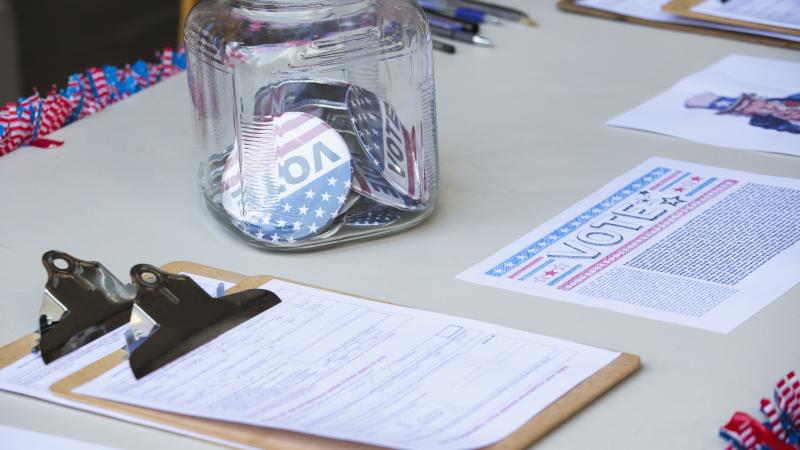Biden's 'red light, green light' energy policy hindering cooperation with Big Oil
Uncertainty caused by administration comes as president blames industry, Russia for spike in gas prices
The Biden administration is sending mixed signals to the oil and gas industry, creating uncertainty that's hindering the ability of companies to work with the government amid historically high gas prices, according to economists and industry insiders.
The administration's seemingly conflicted policy of pursuing a complete transition away from fossil fuels while also demanding a surge in gasoline production comes as President Biden continues to blame Big Oil and Russian President Vladimir Putin for current fuel prices — blame described by experts as inaccurately placed.
"The president's stated intent is to get off oil," said Robert Rapier, a chemical engineer with decades of experience in the energy industry.
"Oil companies therefore may not invest billions of dollars to upgrade and produce if they won't need [these upgrades for oil] in a few years. Democrats used to blame oil companies for climate change. Now these companies apparently aren't doing enough. They're blamed for producing and then blamed for not producing."
Biden infamously promised to "end" and "get rid of" fossil fuels while campaigning for president. Since entering the White House, he's said his goal is to create a "carbon pollution-free power sector by 2035 and net-zero emissions economy by no later than 2050."
Biden has also committed by 2030 to cut U.S. fossil fuel emissions by 52% and for half of all new vehicles sold in the U.S. to be electric.
"It's not helpful or realistic to signal shifting away from fossil fuels," said Dean Foreman, chief economist for the American Petroleum Institute. "The path to decarbonization depends on having affordable fuel today."
In a speech on Wednesday, Biden echoed his desire to move away from fossil fuels "so we never have to pay at the pump in the first place." But he also touted the level of oil production during his administration and called on the industry "to refine more oil into gasoline" to help bring down gas prices.
"We can't have a 'red light, green light' energy policy," said Stephen Moore, senior economist for FreedomWorks. "This approach creates uncertainty, which leads to people leaving the industry."
Energy Secretary Jennifer Granholm on Thursday met with oil executives and other leaders in the industry to discuss ways to lower fuel prices, which remain near all-time highs for both gasoline and diesel.
In a joint statement, the American Petroleum Institute and the American Fuel & Petrochemical Manufacturers said there were no breakthroughs but described the meeting as constructive.
The conciliatory tone of the meeting was in contrast to earlier this week, when Chevron CEO Michael Wirth wrote in a letter to Biden that there has been n effort at times to "vilify" the industry.
Hours later, Biden said the executive was being too sensitive: "I didn't know they'd get their feelings hurt that easily."
Earlier this month, Biden wrote a letter to Wirth and other oil executives accusing Chevron of maximizing profits amid soaring gas prices rather than increasing production to try to lower costs. He also criticized them for making "more money than God."
On Wednesday, Biden called on oil companies to "use their profits to increase refining capacity rather than buy back their own stock."
But U.S. refiners are utilizing over 90% of their current capacity in an effort to meet demand, according to the American Petroleum Institute.
"Blaming refineries is a curious approach," said Foreman, who insisted the industry and the administration need to work together. "The amount of production by refineries is above average for the last five years, and they're producing at historically high levels."
Rapier said that gas prices are currently so high because supply has been unable to meet high demand for a variety of reasons, such as low inventories, supply chain disruptions, workforce issues, and business closures — much due to COVID-19.
He said that the situation had gotten worse after Russia's invasion of Ukraine, but this process predated the war, with gas prices already going up before then. Biden has blamed the invasion for current gas prices.
"Our response to Russia's invasion actually caused some of this, not the invasion itself," said Rapier, noting the West's efforts to cut off Russian energy disrupted the global energy market.
"I'm not saying it was the wrong decision, but we should understand what happened. I wish Biden would be honest. Instead, he chooses to blame Russia and oil companies."
Biden on Wednesday called on Congress to pass legislation implementing a three-month suspension of the 18.4 cents-a-gallon federal tax on gas and the 24.4 cents-a-gallon federal tax on diesel fuel.
"It doesn't reduce all the pain but it will be a big help," said Biden.
Moore described the proposal as a "Band-Aid" that will have limited effect, while Rapier said removing the tax would actually make the situation worse by doing nothing to address supply while causing demand to go up.
"People don't understand how oil and gas are actually priced, so you get stupid ideas like suspending the gas tax," he said.
















